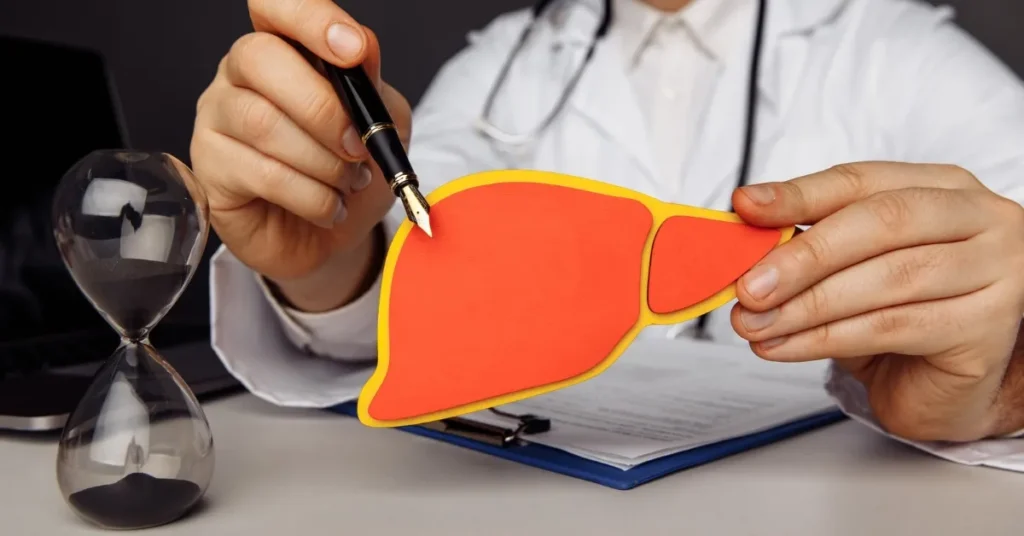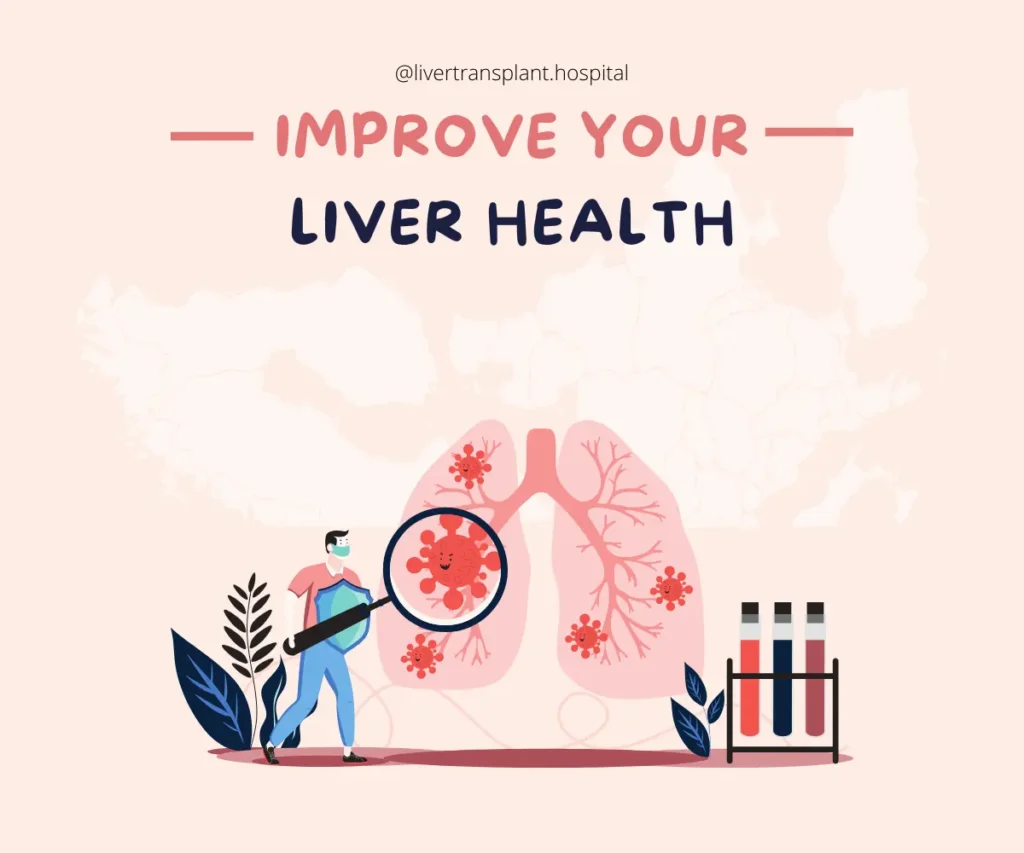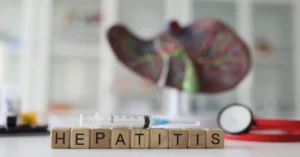Liver transplant surgery is a vital procedure for individuals with severe liver disease, offering a chance for survival and improved quality of life. This complex operation involves replacing a diseased liver with a healthy one from a donor. The decision to undergo a transplant requires thorough evaluation and preparation. Understanding the process, from initial assessment to post-operative recovery, is essential. This blog provides insights into the surgery, recovery expectations, and the importance of choosing experienced surgeons.
What is Liver Transplant Surgery?
Liver transplant surgery is a complex and highly specialized medical procedure designed to replace a failing or diseased liver with a healthy liver from a donor. This surgery is typically considered for patients with severe liver conditions such as cirrhosis, liver cancer, or acute liver failure.
The liver is a vital organ responsible for various functions, including detoxification of harmful substances, production of bile for digestion, and regulation of blood clotting. When the liver fails to perform these functions due to disease or damage, a liver transplant becomes a necessary intervention.
- Evaluation: Before the surgery, patients undergo an extensive evaluation to determine their suitability for a transplant. This includes medical tests, psychological assessment, and discussions about the risks and benefits.
- Donor Matching: Finding a suitable donor is crucial. Donors can be deceased or living. In the case of living donors, a portion of the donor’s liver is transplanted, and both the donor’s and recipient’s livers regenerate to full size.
- Surgical Procedure: The actual surgery involves removing the diseased liver and implanting the healthy donor liver. This complex operation can take several hours and requires a skilled surgical team.
- Recovery and Aftercare: Post-surgery, patients need close monitoring and lifelong medication to prevent rejection of the new liver.
- Risks: As with any major surgery, liver transplants carry risks, including infection, organ rejection, and complications related to immunosuppressive medications.
Understanding the intricacies of liver transplant surgery helps patients and their families make informed decisions and prepares them for the journey ahead.
Liver Transplant Process
The liver transplant process is a meticulously coordinated series of steps that ensures the best possible outcome for the patient. It involves several key stages:
- Evaluation: This initial stage involves a comprehensive medical evaluation to determine if the patient is a suitable candidate for liver transplant surgery. Tests include blood work, imaging studies, and assessments of heart and lung function. Psychological evaluations are also conducted to ensure the patient can cope with the surgery and follow-up care.
- Listing: If deemed eligible, the patient is placed on the transplant waiting list. This list is managed based on medical urgency, blood type compatibility, and other factors. The wait time can vary significantly depending on the availability of suitable donor organs.
- Matching: Finding a compatible donor is crucial. The donor liver must match the recipient’s blood type and be of an appropriate size. Matching also involves considering the urgency of the patient’s condition, with those in critical need receiving priority.
- Surgery: Once a suitable donor liver is identified, the patient is prepared for surgery. The surgical procedure involves the removal of the diseased liver and its replacement with the healthy donor liver. This intricate surgery can last several hours and requires a highly skilled surgical team.
- Post-Surgery Care: After the surgery, the patient is moved to the intensive care unit (ICU) for close monitoring. Recovery includes managing pain, preventing infections, and ensuring the new liver is functioning correctly. Post-surgery care is vital to address any immediate complications and set the stage for long-term recovery.
Understanding the liver transplant process is essential for patients and their families to prepare for the journey ahead and ensure a successful outcome.
Importance of Liver Transplant Surgery
Liver transplant surgery holds immense significance for patients with severe liver conditions. This life-saving procedure is often the only viable option for individuals suffering from end-stage liver disease, liver cancer, or acute liver failure. Here’s why liver transplant surgery is crucial:
- Life-Saving: For many patients, liver transplant surgery is the only option to survive end-stage liver disease or acute liver failure. Without a transplant, these conditions are often fatal.
- Improved Quality of Life: Patients who undergo liver transplant surgery often experience a significant improvement in their quality of life. They can return to normal activities, free from the debilitating symptoms of liver disease.
- Long-Term Survival: Successful liver transplants can dramatically increase a patient’s life expectancy. Many patients live for decades after the surgery, leading full, healthy lives.
- Economic Benefits: Although the initial cost of liver transplant surgery is high, it can be economically beneficial in the long run. The surgery can reduce the need for ongoing medical treatment and hospitalizations associated with chronic liver disease.
- Advanced Medical Care: The need for liver transplant surgery highlights the advancements in medical care and technology. It showcases the ability of modern medicine to perform complex surgeries that save lives and improve health outcomes.
Understanding the importance of liver transplant surgery helps patients and their families appreciate the value of this procedure and make informed decisions about their healthcare.
Liver Transplant Recovery
Recovery from liver transplant surgery is a critical phase that demands patience, diligence, and adherence to medical advice. The recovery process can be divided into several stages, each with its own set of challenges and milestones.
- Hospital Stay: Post-surgery, patients typically spend 1-2 weeks in the hospital. During this time, medical staff closely monitor the patient’s condition, manage pain, and ensure the new liver is functioning properly. This stage is crucial for early detection of any complications such as infection or rejection.
- Medication: After discharge, patients must take immunosuppressive medications for life. These drugs help prevent the body from rejecting the new liver. Adhering to the prescribed medication regimen is essential to avoid complications.
- Follow-up Care: Regular follow-up appointments are necessary to monitor the patient’s progress. These check-ups often include blood tests, imaging studies, and other assessments to ensure the liver is functioning well and to adjust medications as needed.
- Diet and Lifestyle: Adopting a healthy diet and lifestyle is vital for recovery. Patients are encouraged to eat a balanced diet, avoid alcohol, and engage in light physical activity as recommended by their healthcare team.
- Emotional Support: Recovery isn’t just physical; it’s emotional too. Patients may experience a range of emotions, including relief, anxiety, and even depression. Support from family, friends, and counseling services can be invaluable during this time.
By understanding these aspects of liver transplant recovery, patients can better prepare for the journey ahead and work towards a successful long-term outcome.
Choosing the Best Liver Transplant Surgeons
Selecting the best liver transplant surgeons is a critical factor in ensuring a successful liver transplant surgery. The expertise and experience of the surgeon can significantly impact the outcome and overall patient experience. Here are some key considerations when choosing the best liver transplant surgeons:
- Experience: Opt for surgeons who have extensive experience in performing liver transplants. Look for those who have handled numerous cases, including complex ones, as their experience will contribute to better decision-making during surgery.
- Credentials: Check the surgeon’s credentials and certifications. Surgeons who are board-certified and have specialized training in liver transplants are more likely to be well-versed in the latest surgical techniques and advancements.
- Hospital Affiliation: Consider surgeons affiliated with top-rated hospitals known for their liver transplant programs. These hospitals usually have comprehensive transplant teams, state-of-the-art facilities, and high success rates.
- Patient Reviews: Read patient reviews and testimonials to gain insights into the surgeon’s reputation and patient satisfaction. Positive feedback from previous patients can indicate a surgeon’s skill, bedside manner, and overall care quality.
- Success Rates: Inquire about the surgeon’s success rates and post-surgery outcomes. High success rates and low complication rates are indicators of a surgeon’s proficiency and reliability.
By thoroughly evaluating these factors, you can choose the best liver transplant surgeons who will provide the highest level of care and increase the chances of a successful liver transplant surgery.
Risks and Complications
Liver transplant surgery, while life-saving, comes with its share of risks and complications. It is essential for patients and their families to be aware of these potential issues to manage expectations and prepare for post-operative care effectively.
- Infection: Due to the immunosuppressive medications required to prevent organ rejection, liver transplant recipients are at a higher risk of infections. These infections can range from mild to severe and can occur in various parts of the body, including the lungs, urinary tract, and surgical site.
- Rejection: Despite the use of immunosuppressive drugs, the body may still recognize the new liver as a foreign object and attempt to reject it. Acute rejection can happen within the first few weeks post-surgery, while chronic rejection can occur months or years later. Regular monitoring and prompt medical intervention are crucial to manage rejection.
- Bleeding: Bleeding is a common complication during and after liver transplant surgery. The liver is a highly vascular organ, and the surgical process can disrupt blood vessels, leading to significant blood loss. Patients may require blood transfusions and close monitoring to manage this risk.
- Blood clots: Post-surgery, patients are at risk of developing blood clots in the veins, which can lead to complications such as deep vein thrombosis (DVT) or pulmonary embolism (PE). Preventive measures include the use of blood thinners and encouraging early mobilization.
- Bile duct complications: Issues such as bile leaks or strictures (narrowing of the bile ducts) can arise after liver transplant surgery. These complications may require additional procedures, such as stent placement or surgery, to correct.
Understanding these risks and complications enables patients and their healthcare teams to take proactive steps in managing them, ensuring a smoother recovery and better long-term outcomes.
Conclusion
Liver transplant surgery is a transformative procedure that offers a new lease on life for patients with severe liver diseases. Understanding the liver transplant process, recovery, and the importance of choosing the best liver transplant surgeons can help patients navigate this journey with confidence. Whether you are considering liver transplant surgery or supporting a loved one, knowledge and preparation are key to a successful outcome.






